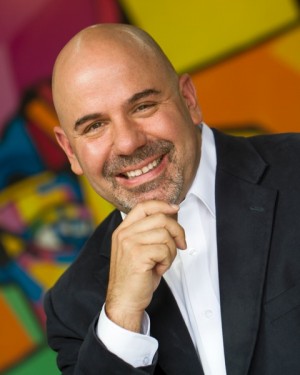The Soul of An Artist: An Interview with Ivan Jenson
GALO: Were you in New York City during 9/11?
IJ: I was. It was a terrible time and a startling time. But at the same time, it brought everyone together. I think I described it a lot in the novel. Old grudges with my neighbor were suddenly dissolved, everyone was greeting each other. People were chatting about world issues and what had happened. It’s a time I’ll never forget. It probably affected me more than I realize. It came out in this novel. It took time away from New York to be able to grapple with such an unspeakable time.
GALO: For Milo, it plays such a big role in his relationships. Can you talk a little about that?
IJ: Well, to Milo and to Samantha, they thought it was the end of the world, and they responded accordingly. They had each other. It brought them together. That’s important. I think anyone who had someone special during that time was at an advantage. I can’t imagine what it would be like to go through [it] alone. There was a collective neurosis that happened. But they shared that time and it brought them together. Also, the northeastern blackout was another time that brought New York together in an odd way.
GALO: Another theme is the balance between an extremely demanding art career and this human need for family and stability.
IJ: I think it happened in the ’80s. I was always told, “Don’t worry about a relationship. Focus on your career and women will be falling at your feet,” or whatever. It was all [about the] career in the ’80s. It was a glittering time; a time when artists could mesh with multimillionaires. I was friends with Malcolm Forbes, and I used to go on his Highlander Yacht. It was a time when to be an artist was also [the time] to have the status of a very wealthy person, a celebrity or an actor.
I personally have always had a lot of drive. I lost it briefly once, and it came back later. But you have to be blessed with a lot of drive to make it in art. You have to be at it every day. I, like Milo, share that singular drive and sacrifice that you have to make. If you’re a painter, you have to say to people, “I gotta paint now.” And paint all night. And as a writer you have to say, “No, I can’t go to this movie right now. I’ve got to finish my pages for the day.”
GALO: You’ve been a writer, a painter, a poet, and have tried other forms of expression. Is writing prose very different than creating a poem or a painting?
IJ: I would say that I write poetically and I’ve been told that my writing is poetic. I had a teacher in high school who read some of my poems and then he announced to the class—this is a moment that I always remember, and it’s why I came back to my writing—that I had something that couldn’t be taught, that I was a better writer than any of the students at the school, and also any of the faculty, because I had the gift of the poet.
I came back to my writing with a fury. I try to write with a turn of phrase and with imagery. I try to keep my ears open for dialogue. But the great thing about writing is that I had written this script [for a screenplay], and people would say, “Oh, my God, that’s going to take millions to make.” So, I decided to focus my writing on novel writing, because I could write multi-million dollar stories, and there was no budget control. I think writing combines all the arts: poetry, the visual. I put everything possible into my novels.
I’ve written a string of novels. I had a very, very inspired run of novels that will be coming out. This is the tip of the iceberg. It is gratifying, because you can really just grab everything. You often go to self-help seminars that tell people to “let go.” But if you’re a great writer, you hold on to all that stuff, everything. And then you formulate it and set it down.
GALO: Where did you grow up?
IJ: I grew up in Los Angeles, and then the family moved to Indiana for two years. We lived right near the University, and I used to go there, even though I was a teenager, and took oil painting classes. I consider myself self-taught because I was in and out. We moved to New York when I was 16, to Westchester. I wrote a novel about Westchester circa 1980. It’s kind of an epic ’80s family saga.
(Article continued on next page)

